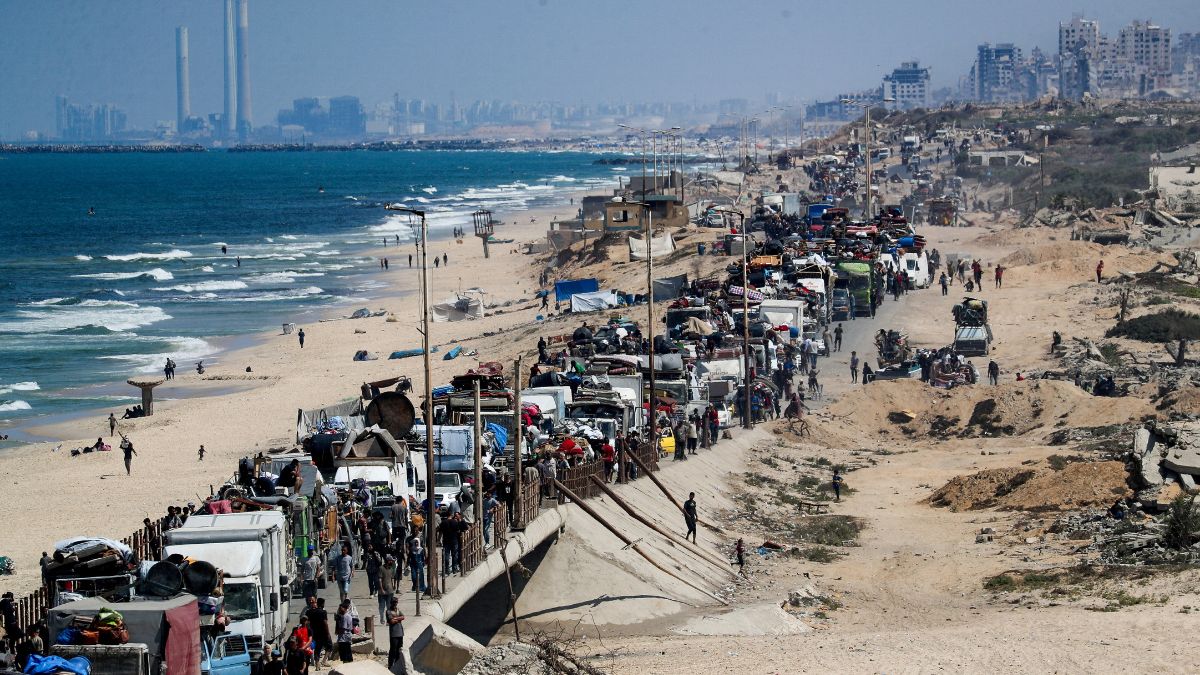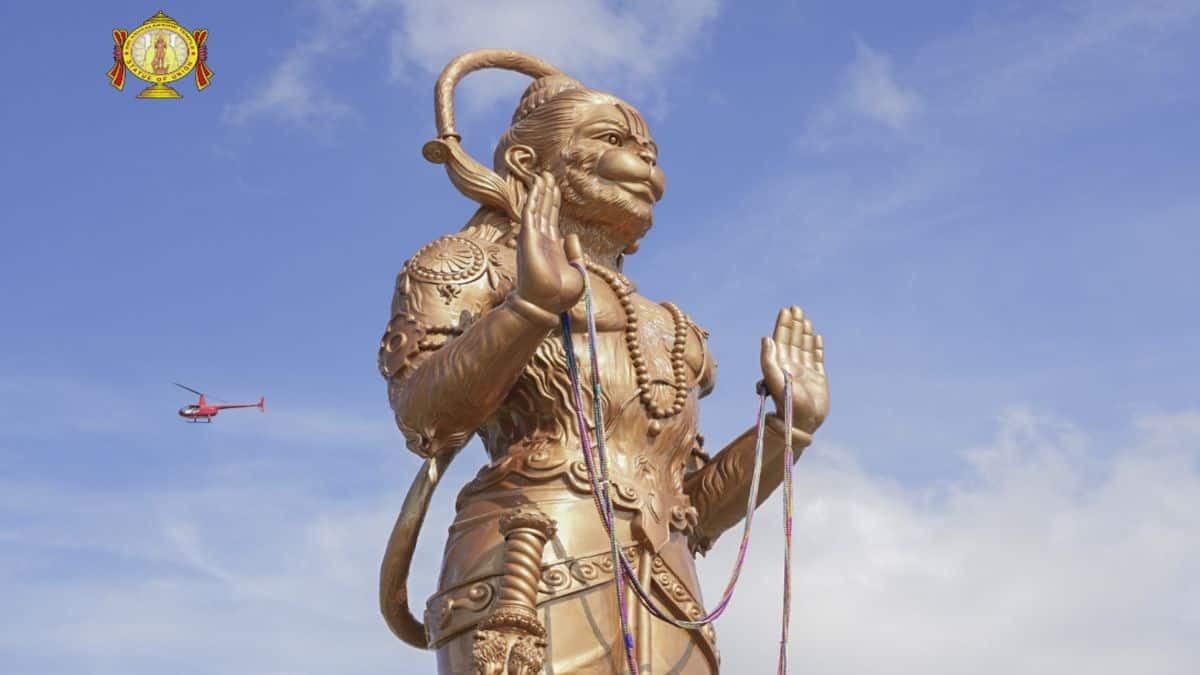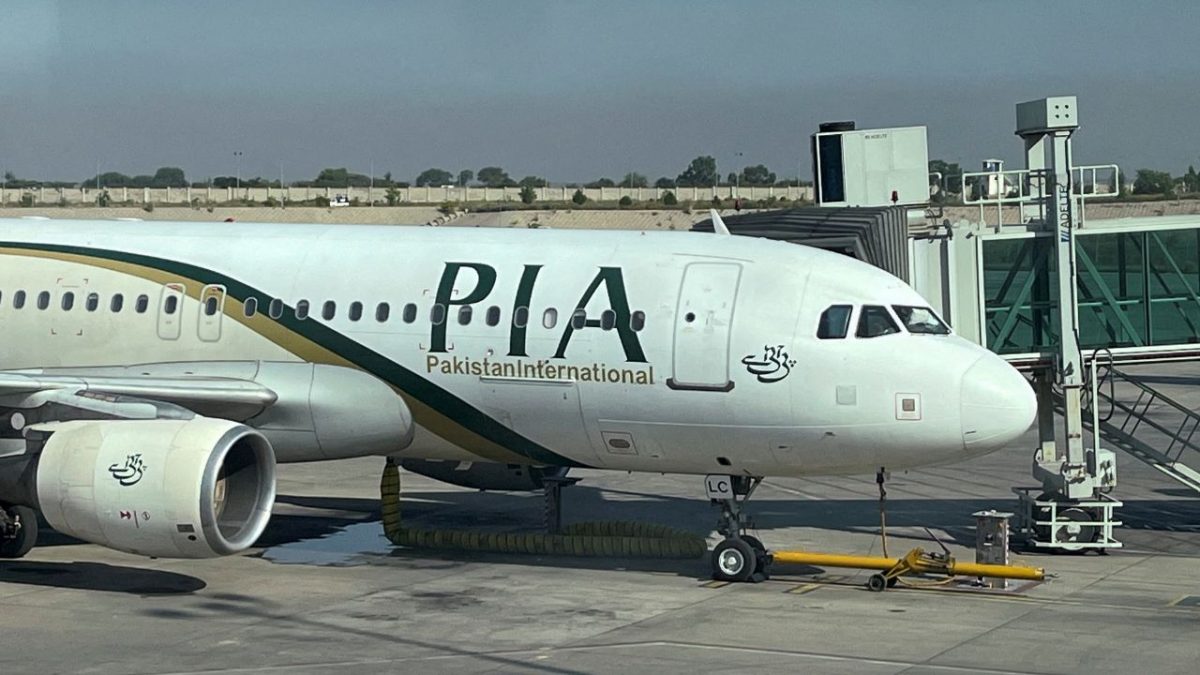As the 80th session of the United Nations General Assembly (UNGA) begins in New York, a high-profile meeting is being organised by United States President Donald Trump.
Scheduled for Tuesday, the session is set to bring together a select group of Arab and Muslim leaders for critical talks on regional security and the ongoing Gaza war, reported Axios.
The gathering will take place behind closed doors on the sidelines of the UNGA.
Invitations have been sent to leaders from Saudi Arabia, the United Arab Emirates (UAE), Qatar, Egypt, Jordan, and Turkey, reportedly along with Pakistan Prime Minister Shehbaz Sharif, whose participation has been officially confirmed by Islamabad.
In a statement by Pakistan’s Foreign Office, Islamabad said that Sharif will attend “a meeting of select Islamic leaders with US President Trump to exchange views on issues pertaining to regional and international peace and security.”
The meeting will come just six days before Israeli Prime Minister Benjamin Netanyahu travels to Washington for direct talks with Trump on September 29.
Gaza war to be at the centre of talks
Over the past two years, the Gaza conflict has escalated dramatically. According to reports, more than 60,000 Palestinians have been killed, while infrastructure across the territory has been severely damaged or destroyed.
The humanitarian crisis has drawn widespread international condemnation and has strained relations between Israel and several of its Arab neighbours.
Amid growing pressure, several Western countries, including Canada, Australia, and the United Kingdom, recently announced their recognition of a Palestinian state.
Israeli Prime Minister Netanyahu rejected these moves outright, stating on Sunday that such recognition “will not happen.”
Against this backdrop, Trump has been seeking ways to mediate an end to the fighting while also maintaining Washington’s long-standing alliance with Israel.
Impact Shorts
More ShortsThe upcoming meeting is intended to create a forum where Arab and Muslim leaders can discuss a coordinated post-war plan for Gaza.
According to officials familiar with the planning, Washington wants these countries to take an active role in stabilising Gaza once hostilities cease, including possibly contributing troops to a multinational force that would replace Israeli forces on the ground.
Arab leaders, on the other hand, are expected to use the meeting to urge Trump to pressure Israel to halt its military operations and to abandon any plans to annex parts of the occupied West Bank.
The stakes are especially high for the UAE, which has warned that Israeli annexation could unravel the Abraham Accords, the landmark diplomatic agreements brokered during Trump’s first term that normalised relations between Israel and several Arab nations.
Tensions over recent Israeli strike on Qatar
Complicating the situation further is the Israeli airstrike on Doha, Qatar, on September 9, which targeted Hamas leaders based there. This marked the first-ever Israeli attack on the territory of a Gulf nation, setting off alarm bells across the region.
The strike prompted Qatar to immediately call an emergency joint summit of the Arab League and the Organisation of Islamic Cooperation (OIC) on September 15.
More than 40 countries participated, with high-level attendance from across the Muslim world.
Among those present were Egypt’s President Abdel Fattah el-Sisi, Turkey’s President Recep Tayyip Erdogan, Saudi Crown Prince Mohammed bin Salman, Iranian President Masoud Pezeshkian, and several other regional leaders.
The summit began with strong condemnation of Israel’s actions, framing the attack on Doha as a direct violation of Qatar’s sovereignty. Qatar has long been a close ally of the United States and hosts the largest US military airbase in West Asia, making the strike particularly sensitive.
The joint communique issued at the end of the summit focused primarily on condemning Israeli actions in Gaza. It urged “all states to take all possible legal and effective measures to prevent Israel from continuing its actions against the Palestinian people.”
While the communique did not explicitly mention the idea of a collective defence pact, several leaders used their speeches to call for stronger security cooperation, including the possibility of forming a Nato-style alliance for the Muslim world.
The push for an ‘Islamic Nato’
At the Doha summit, Egyptian President Abdel Fattah el-Sisi proposed reviving a collective defence arrangement similar to Nato, in which an attack on one Arab or Islamic nation would be treated as an attack on all member states.
El-Sisi suggested that his country was prepared to deploy 20,000 troops immediately to form the backbone of such a force, encouraging others to contribute as well.
Iran supported the concept but pushed for a more explicitly religious alliance under the banner of an Islamic Nato, while Egypt and several Arab countries preferred a more regional Arab framework.
The discussions marked the most serious consideration of a collective defence pact among Muslim-majority nations in recent years.
For Pakistan, this development is of particular significance. Experts believe that Pakistan’s powerful Army Chief Asim Munir envisions his country taking a leadership role in such an alliance.
Pakistan is the only Muslim-majority country with nuclear weapons, which positions it uniquely within the Muslim world’s security architecture.
The idea of an Islamic Nato has been under discussion for years but gained new momentum after the Doha strike. Leaders at the summit debated how to pool military and strategic resources to protect their nations from external threats.
Pakistan-Saudi Arabia defence pact raises questions
Pakistan and Saudi Arabia announced a bilateral defence pact days before the upcoming UNGA meeting. The agreement stipulates that any attack on one country will be considered an attack on both, echoing the collective defence principle at the heart of Nato.
This pact is seen by analysts as a possible first step toward a broader Arab-Islamic defence coalition. The timing of the agreement has led some to link it directly to the ongoing discussions about an Islamic Nato, though neither government has confirmed this explicitly.
Pakistan’s inclusion in Tuesday’s meeting, alongside major Gulf powers, is being viewed as a sign of Islamabad’s improving ties with Washington.
Relations between the US and Pakistan had been strained in recent years but have warmed since May, when Trump claimed to successfully brokered a ceasefire between India and Pakistan following a dangerous escalation between the two nuclear-armed neighbours.
Separate Gulf leaders’ meeting with Trump
In addition to the main session with select Islamic leaders, Trump is also expected to hold a separate meeting later the same day with leaders from the Persian Gulf region.
This gathering will include representatives from Saudi Arabia, the UAE, Qatar, Oman, Bahrain, and Kuwait.
Sources indicate that the primary topic will be Gulf countries’ concerns over the Israeli strike on Doha.
These nations are seeking assurances from Washington that similar attacks will not occur again. They are also likely to raise broader security concerns, including the risk of further escalation if Israel continues its aggressive military strategy.
Despite Trump’s efforts to engage with Arab and Muslim leaders, there remains deep frustration across the region regarding Washington’s perceived support for Israel’s military actions.
Many Gulf states believe that the US has not done enough to restrain Israel or to address the humanitarian crisis in Gaza.
After the Doha strike, Trump met with Qatari Prime Minister Sheikh Mohammed bin Abdulrahman Al-Thani in New York to discuss the incident.
However, US Secretary of State Marco Rubio later stated publicly that the United States would not alter its fundamental relationship with Israel, a message that disappointed many Arab leaders.
As a result, Tuesday’s meeting represents an opportunity for these nations to press Trump directly on their concerns and to seek a clearer US position on future Israeli actions.
With inputs from agencies


)

)
)
)
)
)
)
)
)



